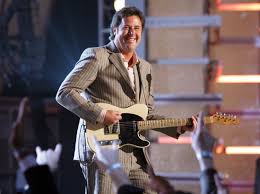In the stillness of August 8, while Nashville rested under the weight of night, Vince Gill’s voice cut through the silence with a trembling urgency. “Dolly, we have to do something,” he said over the phone, his grief pressing down on every word. “Reba’s hurting in a way I’ve never seen before.”
On the other end, Dolly Parton paused, her own heart still fragile from losing her husband. Her voice, when it finally came, was soft but resolute. “I know that pain, Vince. I can’t let her carry this alone.”
By dawn, as the sky shifted from indigo to pale gold, they had finished what felt less like a song and more like a prayer. Dolly looked toward the window, her voice steady with conviction. “We don’t need a studio for this. We just need heart.”
A few hours later, barefoot on Dolly’s front porch, they began. Vince perched on the steps with his guitar, Dolly beside him, the wooden railing behind them holding the weight of countless shared memories. No cameras, no microphones—just the rhythm of cicadas, birdsong, and the creak of weathered boards beneath their feet.
The song they sang, now called You’re Not Walking Alone, carried the quiet strength of love that lingers after loss. Dolly’s voice trembled on the second chorus, Vince’s guitar steadying the melody as though holding her up. When the last note faded into the summer air, neither spoke. They didn’t need to.
In a world where country music often shines its brightest under spotlights and spectacle, Dolly Parton and Vince Gill had chosen something quieter, more sacred. Not polished for charts or wrapped in studio perfection—just two voices, a guitar, and the unshakable bond of friendship.
And for Reba McEntire, who had just faced the unthinkable, it was exactly the song she needed.

